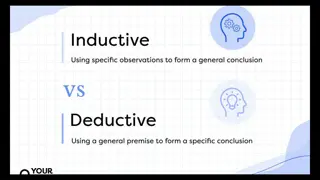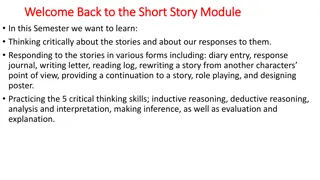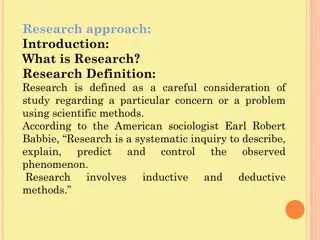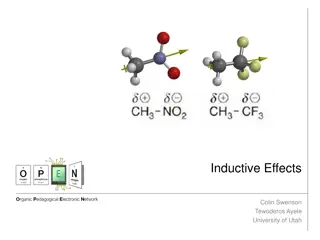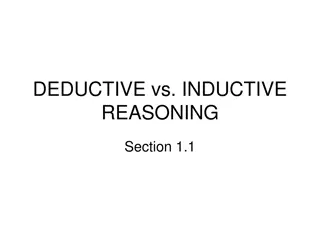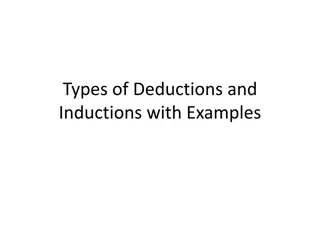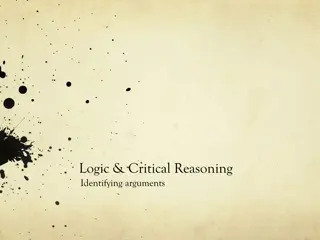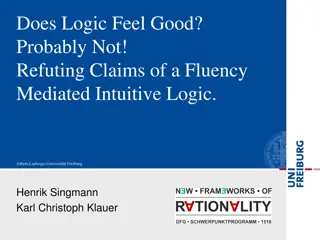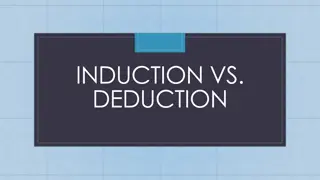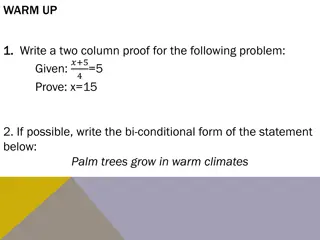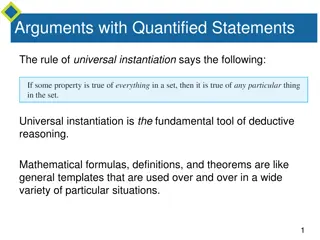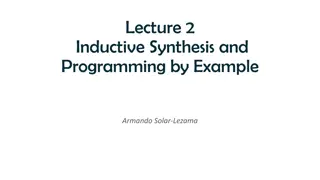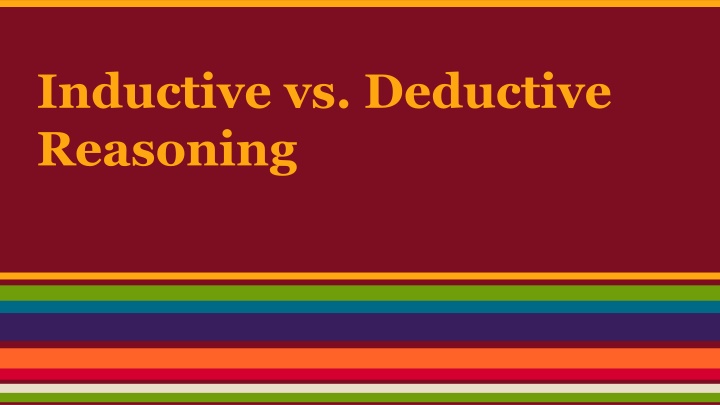
Understanding Inductive and Deductive Reasoning
Explore the differences between inductive and deductive reasoning, where inductive involves making general statements from specific cases and deductive involves deriving specific instances from general statements. Learn how to identify and apply each type of reasoning through examples and explanations.
Download Presentation

Please find below an Image/Link to download the presentation.
The content on the website is provided AS IS for your information and personal use only. It may not be sold, licensed, or shared on other websites without obtaining consent from the author. If you encounter any issues during the download, it is possible that the publisher has removed the file from their server.
You are allowed to download the files provided on this website for personal or commercial use, subject to the condition that they are used lawfully. All files are the property of their respective owners.
The content on the website is provided AS IS for your information and personal use only. It may not be sold, licensed, or shared on other websites without obtaining consent from the author.
E N D
Presentation Transcript
Inductive vs. Deductive Reasoning
Inductive Reasoning Inductive Reasoning, involves going from a series of specific cases to a general statement. The conclusion in an inductive argument is never guaranteed.
Inductive Reasoning Example: What is the next number in the sequence 6, 13, 20, 27,
Deductive Reasoning Deductive Reasoning A type of logic in which one goes from a general statement to a specific instance.
Deductive Reasoning The classic example: All men are mortal. (major premise) Socrates is a man. (minor premise) Therefore, Socrates is mortal. (conclusion)
Inductive vs. Deductive Jalen said, I've noticed that every time I kick a ball up, it comes back down, so I guess this next time when I kick it up, it will come back down, too. Emily said, That's Newton's Law. Everything which goes up must come down. And so, if you kick the ball up, it must come down.
Inductive Deductive I take IN the observation and draw a conclusion. Think: I = INFERENCE! Moves from general observations to specific conclusions. I DRAW a conclusion and look for facts/evidence to prove I m right.
Inductive involves a pattern and what could happen. Specific to general ideas. Considered the least reliable reasoning, test questions will require identifying inductive or deductive.
Deductive involves an assumed truth or fact. General to specific ideas. Test questions will require identifying not only deductive, but deductive and logical.
Examples Young children read comic strips. Teenagers read comic strips. Adults read comic strips. Therefore, ________________________.
Examples The beach roads are jammed with traffic every Memorial Day. The beach roads are jammed with traffic every July 4th. The beach roads are jammed with traffic every Labor Day. Therefore, _________________________.
Examples All lawyers must pass a bar exam. Barbara Smith is a lawyer. Therefore, ____________________.
Examples All ninth graders must take English I. Sarah is a ninth grader. Therefore, ____________________.

